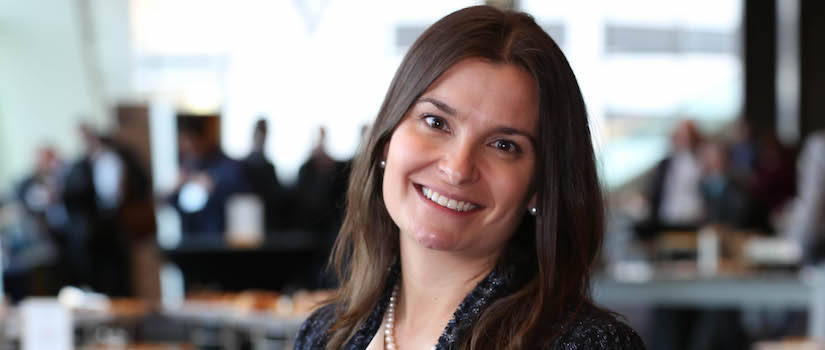Before she worked for the International Association of Geophysical Contractors, Nikki Martin jokes that she didn’t really know what geophysics meant.
But for the past six years, the 2005 political science graduate has been the president of the international trade association for the geophysical and exploration industry, championing to the public and government regulators the importance of fossil fuels and the tools that find them to the world’s evolving energy policies.
And she isn’t just the first woman to be president of the IAGC — she is the first woman to be president of any international oil and gas trade association.
“I'm really honored to be in a position that is leading the industry toward its goals of ensuring that it’s performing to high standards, both in its interaction with the environment and in the safety of its people, and, most importantly, continuing to enable the discovery and delivery of the world's energy supply at a time when we see energy demand increasing globally,” Martin says.
Martin, who grew up in small-town Palmer, Alaska, always wanted to work in the energy sector. Alaskans, she says, are closely connected to the natural resources of their state — and a lot of folks in Palmer worked in oil and gas, Alaska’s biggest industry. She came to the University of South Carolina to run for the cross-country team and study engineering, but that plan didn’t quite work out. During her freshman year, Martin got injured and withdrew from the running team. And she struggled with statics, one of the fundamental courses needed for an engineering degree.
Her interest in politics nudged her toward political science, and she fell in love with it — thanks in large part to Don Fowler, who taught political science in the College of Arts and Sciences for more than 50 years.
“I also took a few really good international relations courses,” Martin says, “which, looking back, was probably a really good foundation for me now that I'm in a global role in a global organization.”
Most IAGC members are geophysical companies that have for decades supported the oil and gas industry — and will for the long haul, Martin says. One of her challenges is to make the case that exploration can yield cleaner fossil fuel technologies as the global energy landscape moves toward a renewable future.
The knowledge I gained from my coursework at UofSC inspired me and opened doors to apply that knowledge throughout my college experience. The education, the supportive environment of UofSC to grow and thrive, and these experiences built a foundation for my career.
— Nikki Martin, 2005 political science
To Martin, the question is one of balance: How can the IAGC help the fossil fuel industry balance the world’s energy needs while minimizing its carbon footprint and working toward a cleaner, greener future?
“These are challenging times, and the stakes are getting higher,” Martin says. “There are legitimate concerns about the trajectory of the world and how climate change is affecting society. At the same time, there are legitimate concerns about the global population being able to have access to electricity, being able to have access to clean cooking fuels. And those cannot be mutually exclusive. We have to be talking from a platform where we can meet both. That requires hard conversations, and that requires factual and science-based information, which our association is all about sharing. We’re all about ensuring that people are dealing with real facts, the real risks and consequences and the real benefits and value of pursuing various energy sources.”
The solution might be driven by data. Huge leaps in geophysical technology, Martin says, have aided discovery, and the data that geophysicists have generated from exploration have made it safer. More survey data means more efficient oil and gas extraction, and that means a smaller carbon footprint.
That data, she adds, can also help develop renewable energy sources while cleaning up fossil fuels’ dirty work. Sharing that data, Martin says, is key. Data from marine seismic surveys helps unearth undersea oil reserves, but it also informs where offshore wind farms can be built. Land surveys that look for natural gas can also discover groundwater reservoirs. And geothermal energy could be an always-on, carbon-free form of energy — but getting to it means borrowing exploration and extraction techniques from oil and gas companies.
“As we go through this energy transition, we will be there to ensure leaps in innovation will enable society to step up and have renewables come online at the same pace as cleaner, more efficient oil and gas to meet the mix of global population needs,” Martin says.
As an advocate for the people exploring for and extracting the resources needed for energy production, especially in an often-controversial industry, Martin must process myriad perspectives: the need to embrace a clean-energy future; the need to share data that supports carbon-capture technology and storage; the need for universal access to electricity; the need to protect the livelihoods of thousands of workers. Earning her political science degree helped her develop the wide lens needed to capture that broad view.
“The knowledge I gained from my coursework at UofSC inspired me and opened doors to apply that knowledge throughout my college experience,” she says. “The education, the supportive environment of UofSC to grow and thrive, and these experiences built a foundation for my career.”
